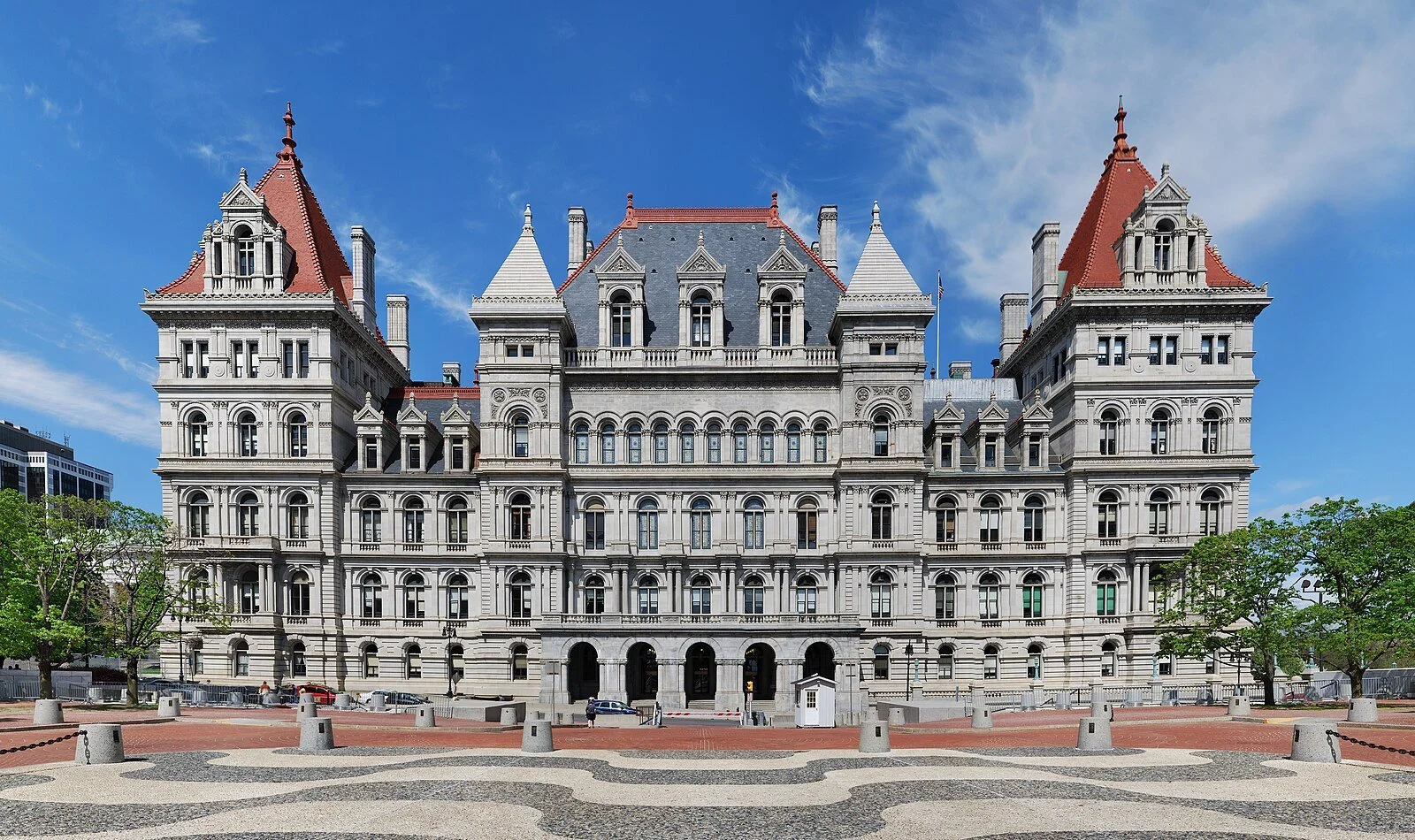Death gamble’ bill passes in Albany
/The New York State legislature passed a bill last week that would eliminate the “death gamble” for judges that determines if their family should get their retirement benefits should they pass while still serving on the bench. Wikimedia Commons photo by Matt H. Wade
By Ryan Schwach
Judges are applauding a bill passed in Albany last week that would nearly eliminate the so-called “death gamble,” which they say forced them to choose between staying on the bench or retiring for the sake of their family’s financial future.
The bill, which now awaits the governor’s signature, was sponsored by Bronx legislators State Senator Luis Sepúlveda and Assemblymember Yudelka Tapia. The bill amends the state’s retirement and social security law to “address an unfortunate and unfair circumstance that strikes sitting New York State judges who die while holding office.”
According to the bill’s advocates, judges are among the few pensioners in New York State whose retirement benefits don’t transfer in full to their families should they die while still serving on the bench.
Currently, the families of judges who died while still on the bench receive a lump sum benefit, which reduces 4 percent each year after the judge turns 60 – the pension is often not as large as in-service pension benefits.
Judges’ groups who have supported the legislation say that current law has sent a number of experienced judges into an early retirement because of concerns that their family potentially would suffer if the judge worked into their 70s – the mandatory retirement age – and died while in office.
Several judicial groups who advocated for the bill’s passage earlier this year called the death gamble a “misfortune, which has befallen a number of our colleagues,” in a letter to Governor Hochul in May calling for support of the legislation.
Although the bill won't completely eliminate the death gamble it will adjust how and how much the families of judges who die while still serving on the bench receive.
According to the bill, beneficiaries can choose to receive the payment in a lump sum, which would be equal to the pension reserve that would have been established had the judge retired on the date of their death. If the value of the death benefit and the reserve-for-increased-take-home-pay is greater, the beneficiary would receive that instead.
Judges this week applauded the bill’s passage.
“I am so happy and commend the legislators,” Queens Supreme Court Justice Carmen Velasquez, who also is the president-elect of the New York City Association of Supreme Court Justices and the current president of the Queens Association of Supreme Court, told the Eagle. “Especially to our great legislators Senator Sepúlveda and Assemblymember Tapia for finally getting the judges on equal footing with the rest of the government employees. I am grateful that it passed, and I am looking forward to the governor signing the bill.”
Also celebrating the bill’s passage was retired Queens judge and former state lawmaker Jeremy Weinstein, who helped lobby for the bill in Albany on behalf of his former judicial colleagues.
“Judges have to take this very strongly into consideration,” said Weinstein, the former Queens Supreme Court, Civil Term administrative judge. “There are some judges who, despite dealing with serious illnesses, go to work every day, and have a passion for what they do, but it's in the back of their mind that the worst imaginable thing can happen and they go to work one day and don't come home.”
Weinstein himself retired in 2019, and said the death gamble was a consideration when he chose to hang up the robes early at the age of 69.
“There were a myriad of reasons for me leaving, but that was in the back of my mind, as well,” he said.
Although it doesn’t happen often, Weinstein said that he remembers judges who passed while still working, leading to lessened benefits for their family.
“It has happened on several occasions in the past,” Weinstein said. “It happened when I was an administrative judge. I had judges who passed away while they were still working.”
Judges, particularly Supreme Court judges, often enter the role later in life, a key reason judicial groups called for the law to be changed.
“There's a tendency, obviously, because of the age of that particular occupation, the susceptibility to dying while in office is far greater than another employee within the state,” Weinstein said.
This also comes as other legislation has been pushed in Albany to increase the mandatory retirement age for judges from 70 to 76.
Under current laws, when a Supreme Court judge hits the age of 70, they are required to apply for recertification if they want to continue to serve in the judiciary. They are again required to reapply at the ages of 72 and 74, and must retire at the age of 76.
“Members of the judiciary tend to get to the bench much later in life, and they tend to stay longer,” said Weinstein.
The retired judge also argued that the impact on the state pension system would be “a drop in the bucket” because, although it happens, it is rare that a judge actually passes while still working.”
“It has happened, it's rare, but it's just, in my judgment, a question of fairness to allow the spouse of that deceased judge to collect the pension they would otherwise be entitled to,” he said.
The bill now passes to the desk of Governor Kathy Hochul, who could potentially sign this bill as well as one that eliminates a similar death gamble for New York transit workers.
The Office of Court Administration did not respond to the Eagle’s request for comment on the legislation’s passing.




